In this article
When you hear the breed Labrador Retriever, you probably picture a friendly face with a happy, wagging “otter tail” and big, strong paws that like to dig and swim. In popular art, you can often find paintings of cheerful chocolate or yellow Labradors hanging out of a Christmas stocking or sticking their head out of the window of a red truck.
The Lab, as they’re affectionately called, makes a great family dog and is almost the perfect picture of friendship. Like similar bigger dogs, Labs may not live as long as some smaller dogs, and Labradors usually have a lifespan of 10–12 years on average. However, proper diet and care may prolong your pet’s lifespan.

What’s the Average Lifespan of a Labrador Retriever?
The average life expectancy of a Labrador retriever is only 10–12 years. While this is average for most dogs, it’s not as long as some small breeds, such as the Chihuahua may see two decades of life. Purebred Labs can have even shorter life spans because some genetic conditions may be inherited from a small gene pool.
Thus, buying a purebred from a breeder who conducts DNA testing before planning a litter of pups or adopting a Labrador mix may result in a longer lifespan if you’re still searching for a dog of your own. If you already have your Labrador, thankfully, there are some things you can do to help extend their life.

 Why Do Some Labrador Retrievers Live Longer Than Others?
Why Do Some Labrador Retrievers Live Longer Than Others?
1. Nutrition
Dog food is formulated based on age and size rather than breed, and every dog needs protein, fat, and carbs in their diet. If you can afford high-quality, grain-inclusive, non-raw dog food and keep your furry friend in lean body condition with a slightly calorie-restricted diet, then this may help lead to a longer life. Talk to a vet about finding the best food for your pup.
If you need to speak with a vet but can't get to one, head over to PangoVet. It's our online service where you can talk to a vet online and get the personalized advice you need for your pet — all at an affordable price!
2. Environment and Conditions
Labradors require bounds of energy. They particularly like to run, swim, and play fetch. If you’re planning on adopting a Lab into your family, make sure you carve out time for their favorite activities and either have a yard or dog park nearby. While they would love to be your best friend, this breed won’t be content sitting around on the sofa all day. They’ll quickly become bored, and dogs with nothing to do can become destructive.
3. Size
Larger-sized dogs tend to have shorter life spans than small dogs. Their daily activities can cause stress on their joints over time, and Labs are particularly prone to hip dysplasia. Make sure your Labrador ingests a substantial amount of omega-3s and vitamin D to support their bones and joints as they age, but don’t overdo it. Vitamin D has its benefits but can be lethal to dogs in high doses. Always talk to your vet before putting your dog on any new regimen, and only give them supplements that are formulated for dogs, as human vitamins may contain harmful ingredients.

4. Sex
If you’ve already chosen a name for Skipper or Sandy, rest assured that sex doesn’t play into a Labrador’s life expectancy. Both males and females live for an average of 12 years.
5. Genes
Like many large dog breeds, Labrador Retrievers are prone to hip and elbow dysplasia, heart disorders, and progressive retinal atrophy, to name a few conditions. Talk to a vet about what you can do to mitigate this.
6. Breeding History
The breeding heritage of the Labrador Retriever goes all the way back to the 1830s when St. John’s Dog, a breed of water dog from Newfoundland that’s now extinct, was bred with British retrievers to create the modern Lab. Today, the Labrador Retriever remains one of America’s most popular dog breeds.
However, improper breeding practices with your current dog or in the dog’s past may result in a shorter lifespan. Plus, genetic mutations and diseases passed along to your dog through their ancestors can result in a shorter life. That’s why it’s important to know where your dog came from and get health records for your dog and its ancestors from the breeder.
7. Healthcare
Taking your Lab to the vet at least once a year for a routine check-up helps keep their health in good standing as they age. Recognizing key signs of conditions that can particularly affect Labradors may also help you monitor your dog’s overall well-being.
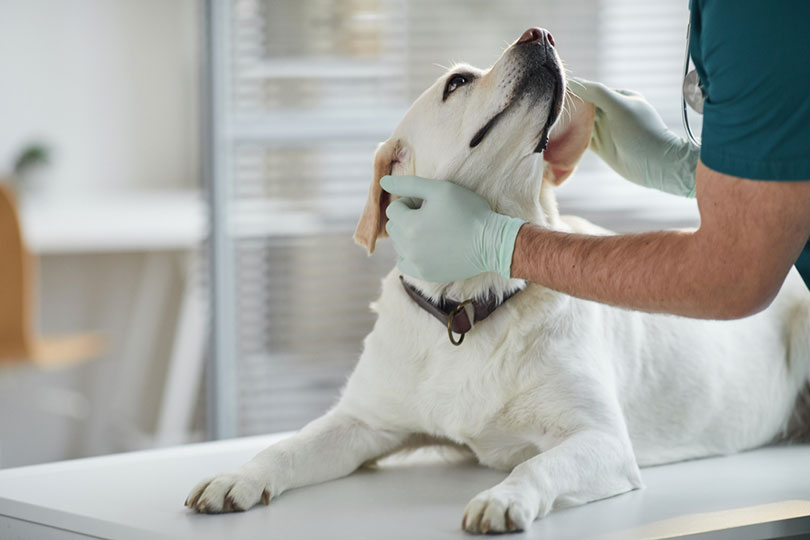

The 4 Life Stages of a Labrador Retriever
Puppy
Labrador Retrievers are cute pups that don’t stay small for long. They’re only in the rapidly growing puppy stage for about 9 months. During that time, they’ll need proper training to teach them what’s appropriate to chew. Labradors are avid chewers that will make a snack out of a pair of slippers if you’re not careful.

Young Adult
Between one and two years old, your puppy will mature into the young adult stage. At this time, they’ll stop growing taller, but they’ll begin to put some more meat on their bones and may grow out of that floppy puppy gait. If they’re not spayed or neutered, this is also the time your pup will reach sexual maturity and will be capable of reproduction.
Mature Adult
Welcome to adulthood! Your Labrador has survived the mischievous days of its puppyhood and the hyper, rambunctious days of its youth. The Lab is fully grown around 2 years old and will be considered a mature adult until they become a senior around ages 7 or 10.
Senior
Sometime between ages 7 and 10, you’ll notice the fur around your Lab’s muzzle turning gray and their steps slowing down a few paces. Although they’ll still probably want to play with you, your Lab might not be as energetic as they used to be. You and your dog can enjoy their senior years by being close companions, taking walks together, and savoring each other’s company.
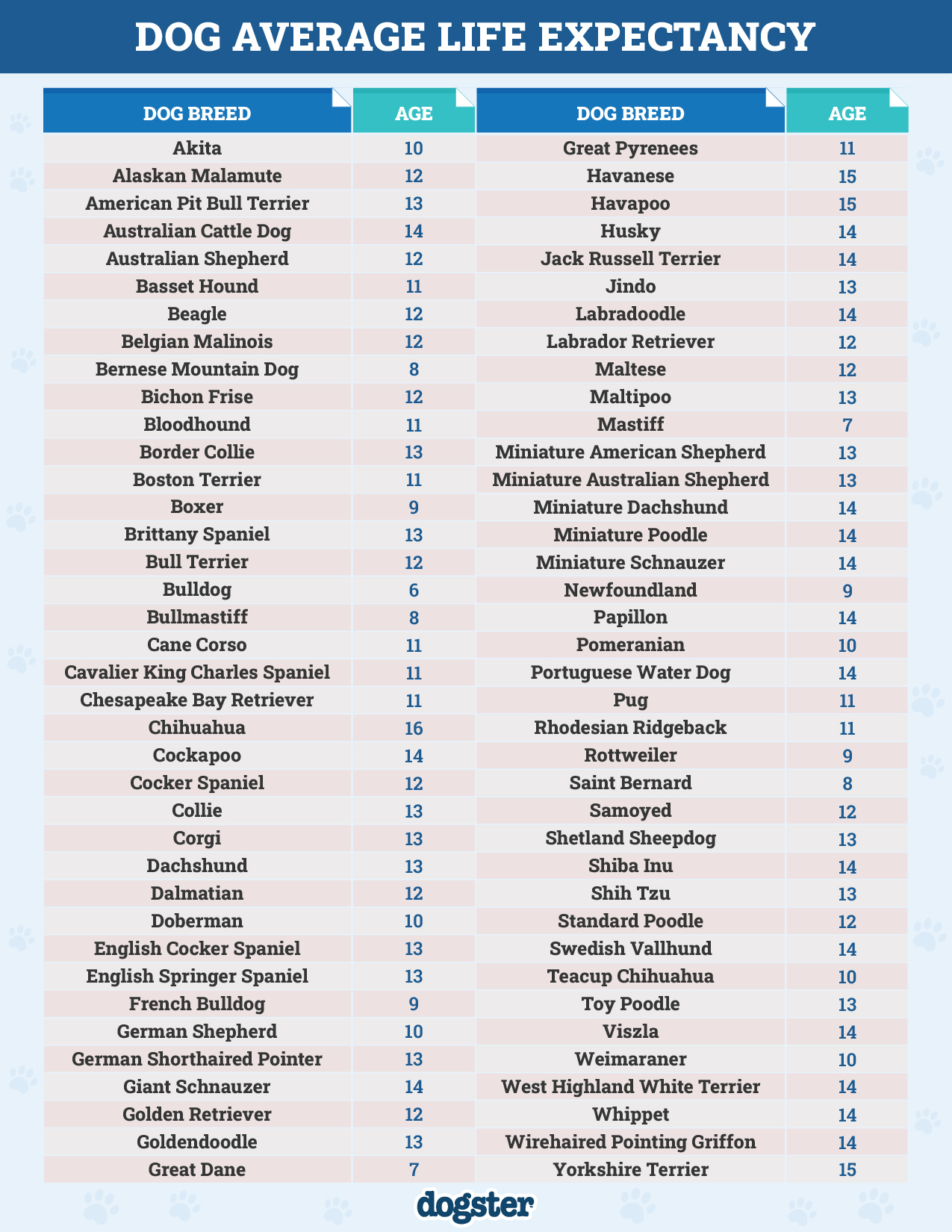

Conclusion
There’s not a more American dog than the Labrador Retriever—even if they originated in Newfoundland. This charismatic breed has woven its way into our hearts and homes, gracing us with love for their 10–12 years of life. Making sure your Labrador has the essential components necessary for health, such as proper diet, exercise, and plenty of attention, will help them live their best life for as long as possible.
- Related Read: 19 Essential Labrador Supplies to Get You Started
Featured Image Credit: Zontica, Shutterstock
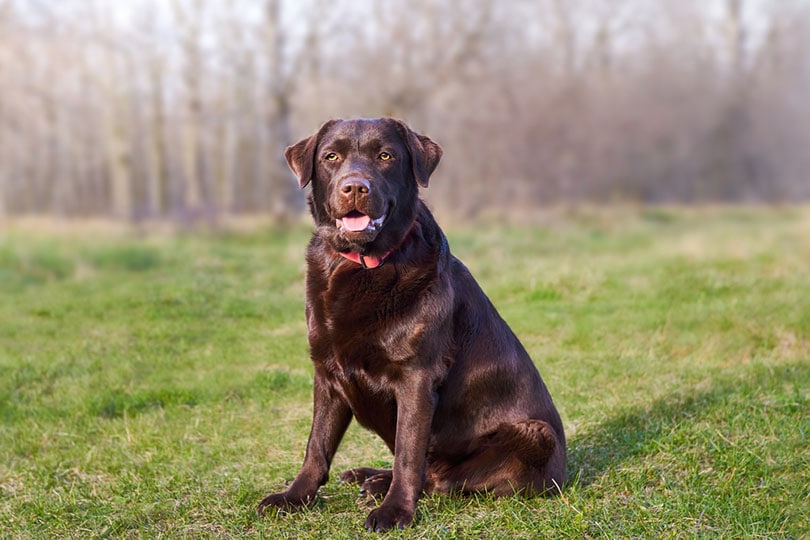
 Why Do Some Labrador Retrievers Live Longer Than Others?
Why Do Some Labrador Retrievers Live Longer Than Others?




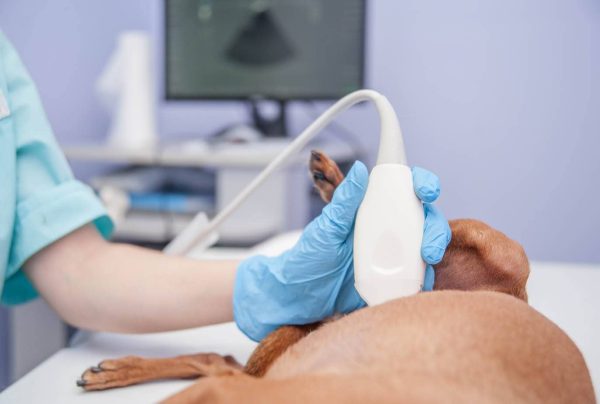





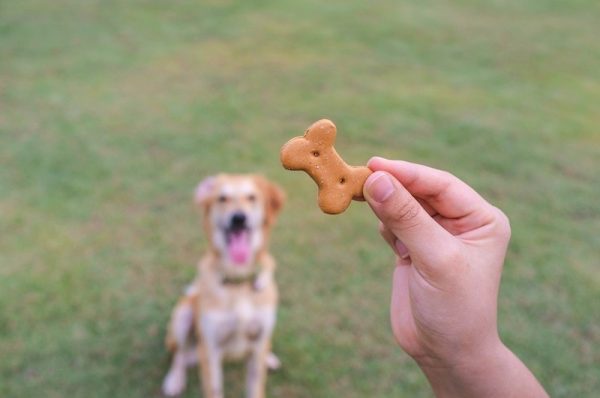
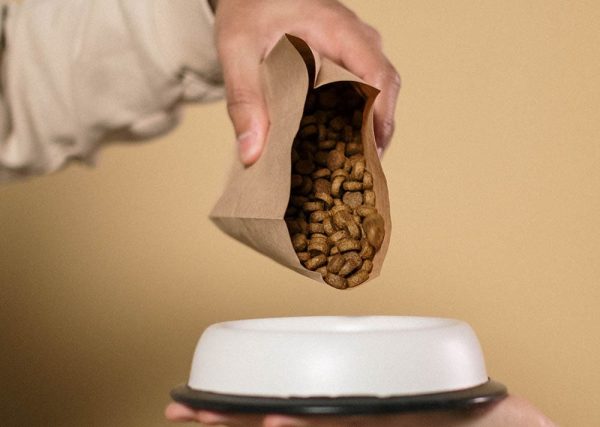







2 Responses
Nice article. Just for the record we recently let go of our chocolate lab Chloe who lived to be 14 yrs 9 months. We credit her longevity to overall good care, finding holistic vets in her later years with a more wholesome diet transitioning away from kibble with last three years of a dog food brand name "Answers" which featured live enzymes. We do not receive any compensation from that company, just want to share what we think was a good thing. Chloe was my best little buddy that played a great game of fetch for many years, finally slowing down at about 11, but sticking with me with my outside chores through her last days. I miss her dearly but thank the good Lord for the time we had.
Hello Phil,
Thank you so much for your message, although I am sorry to hear about Chloe's passing. It is great to hear she was able to spend so many years with you, no doubt thanks to your exemplary care! Also thank you for sharing your experience and advice – this is something that could be very helpful for other pet parents, and we always love to see our readers contribute with their knowledge. Best wishes!